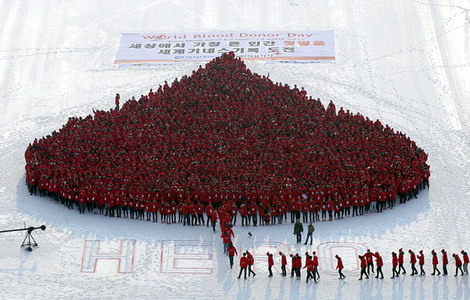Asset approval shake-up begins
Updated: 2012-02-28 13:30
By Wei Tian (China Daily)
|
|||||||||
BEIJING - China will adopt stricter rules for the asset appraisal industry in a bid to prevent irregularities in the reform of State-owned enterprises and the capital market.
On Monday, legislators began a review of a draft law that has been submitted to the National People's Congress for approval. It consists of eight chapters divided into 59 articles, and specifies qualifications and access conditions for the industry.
According to the new rules, "all applicants for appraisal licenses must pass a national exam and have at least two years of industry experience. Those eligible will obtain a certificate to practice as registered appraisers."
Meanwhile, "the establishment of appraisal agencies must be approved by the authorities at the provincial level or above," the draft said.
Asset evaluation refers to the calculation of the market value of company assets by professional organizations. The industry is broken down into six categories in China: general assets; real estate; land; mining rights; used vehicles; and insurance. The activities of the groups in the categories are overseen by five separate ministries.
The industry took shape as the market economy came into being during the 1980s. The services were mainly employed in the transference of property rights during the restructuring of State-owned enterprises.
However, a lack of planning and relevant legislation together with a variety of industry standards, meant that irregular evaluation of assets and undervalued prices were often seen in transactions concerning State-owned property and the requisition of land.
"The assets appraisal industry requires fairness and integrity, but under the chaotic management system in China, it has widely become a manipulated business," said Yue Yang, chief investment officer of the Dalian-based Guochuang Investment Co.
"Irregular" appraisal is often used as the basis for pricing, in the process of asset replacement and debt compensation within listed companies, Yue said. "It has become a tool for large shareholders to act in their own interests."
Appraisal companies can also receive a significant amount of money through this process, he added.
"The economic losses caused by these irregular evaluations are often unaffordable for the appraisers," said Wu Ritu, deputy director of the NPC's Finance and Economic Committee, explaining that those responsible for the mistakes are often unable to pay compensation if their errors are discovered.
In the main, the international appraisal industry has adopted a mechanism to purchase liability insurance to hedge the risks, and Wu has urged Chinese appraisal agencies to do the same.
Liu Yuting, director of the finance ministry's corporate department, said stricter industrial rules for appraisers are also in line with the "going out" process for Chinese enterprises.
"It is crucial that the asset appraisal industry in China competes and cooperates with foreign counterparts, and extends the business to foreign markets, to provide professional services for mergers and acquisitions, project assessment, and the asset management of Chinese companies in the overseas markets," he said.
There are currently almost 10,000 appraisal agencies in China with more than 100,000 registered practitioners. The industry employs 300,000 people.
Related Stories
Assets appraisal group set up toaid SOEs abroad 2011-03-30 07:51
China mulls law to regulate appraisal services 2012-02-27 11:23
Measures on Administration of the Appraisal of Assets Invested by Foreign Businessmen 2006-04-18 10:52
Assets appraisal group set up toaid SOEs abroad 2011-03-30 09:49
- Foreign cars may be shut out of govt fleet
- Video shopping service launched
- Bank opens path to stock sale
- Lower down payment to reduce supply of housing
- China on the path to efficient use of energy
- Minimum price for discount movie tickets mulled
- Volatility to dominate economy
- Capital begins traffic restrictions








